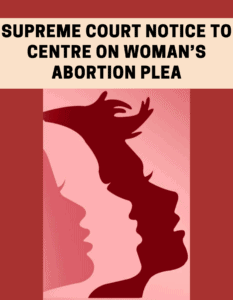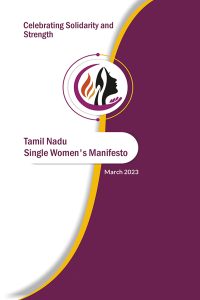Context
Adolescent girls in the rural areas face normalised sexual harassment. It has multiple forms and consequences, especially for young girls from socially excluded communities. It is trivialised and condoned for the boys. For the girls, the intersectionality of discrimination, violence and social condonation as a normative, results in multiplication of vulnerabilities and life changing consequences. It severely restricts their mobility and therefore opportunities and life choices. Even travelling beyond their villages – essential for post elementary school and for employment since most employment opportunities are outside the villages – becomes fraught with danger. They literally have to run the gauntlet daily when going to school or to their workplace. Though many face sexual harassment (as defined by Indian law), due to the all prevalent victim blaming, victim shaming and the notions of purity in a patriarchal, feudal society, they hesitate to inform their parents lest their schooling or employment be terminated.
Given the social environment, bringing the perpetrators to book is not easy. There are several mutually reinforcing reasons. The first is the notion of purity in a feudal, patriarchal society – even if acknowledged to be blameless, she is considered somehow defiled, and a taint on family ‘honour’. In most cases, however, there is a lot of victim blaming and shaming. Both of these enforce a culture of silence. Even if the girl or her immediate family would like to complain, ‘elders’ offer ‘sane counsel’ and actively discourage them from doing so. The second is that the law itself is not easy to use and the male-dominated enforcement machinery, steeped in the same values, attitudes, and practices, are not very responsive (often resorting to victim blaming themselves) making access to justice difficult. This results in virtual impunity to the male perpetrators and their supporters.
Due to this, the girls and their families opt to not approach the justice system. Interaction with the state machinery, especially the police, is often a last resort due to the very unfriendly environment, particularly for adolescent girls. If they do approach the police, getting a complaint registered is a herculean task. The questioning – both by the police and judicial officials – is humiliating. The criminal justice system is unable and unwilling to protect those who approach it. Therefore, approaching the criminal justice system, ironically, increases the harassment. Exacerbating all this is the backlash from the enraged perpetrators who, with their enhanced sense of male entitlement and impunity, and support of the community, turn on the girls and their families for ‘daring to complain’ and ‘spoiling the life of the boys’!
Foresight forum
The one-day Foresight Forum was jointly organised by Gandhian Unit for Integrated Development Education (GUIDE), Tamil Nadu Women’s Movement (TWM), and the Human Rights Advocacy and Research Foundation (HRF) on 5 January 2019 in Chennai to share the draft report of a study done by GUIDE and discuss the findings.
About 95 participants including lawyers who had taken up cases of sexual harassment in public spaces and in the working environment, civil servants from the concerned government departments and leaders from civil society and community-based organisations from Tamil Nadu participated.
The recommendations of the Forum will be incorporated into the final report, which will form the basis for engagement and dialogue with opinion leaders, state mechanisms and law makers. Based on the findings and discussions, the Forum will recommend specific action to enable justice to be done to the adolescent girls. This would range from a) awareness creation in the community b) attitudinal change in society c) efficient implementation of existing legal provisions d) effective functioning of state mechanisms e) gaps in the policy framework, legal ecosystem and constitutional architecture that need attention of the people’s representatives to be rectified.
The bottom line is to create a Tamil Nadu free of sexual and gender-based violence, safe for women of all ages, especially adolescent girls.




